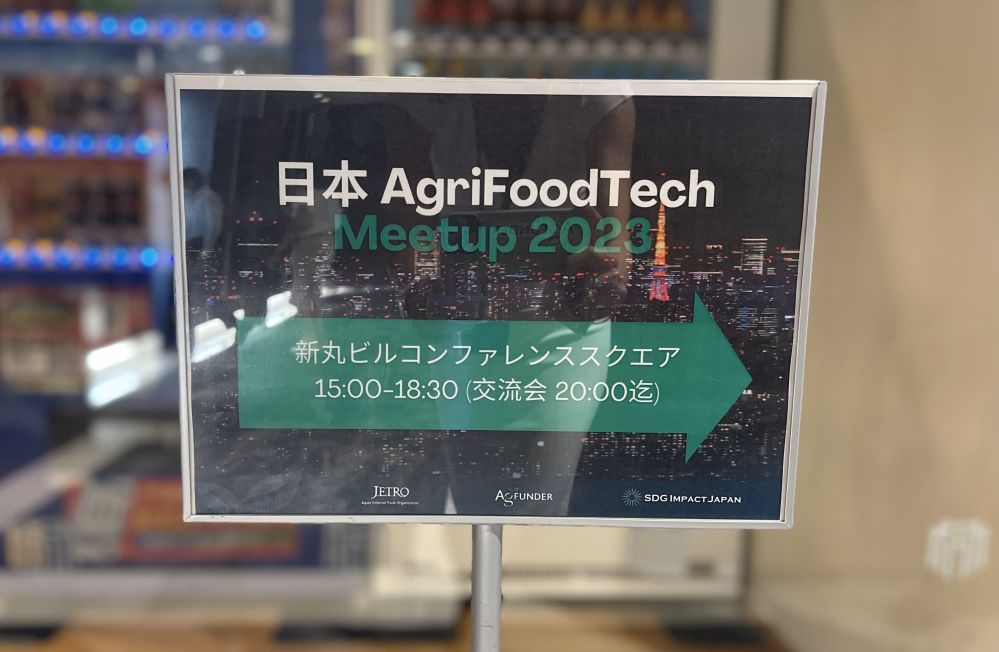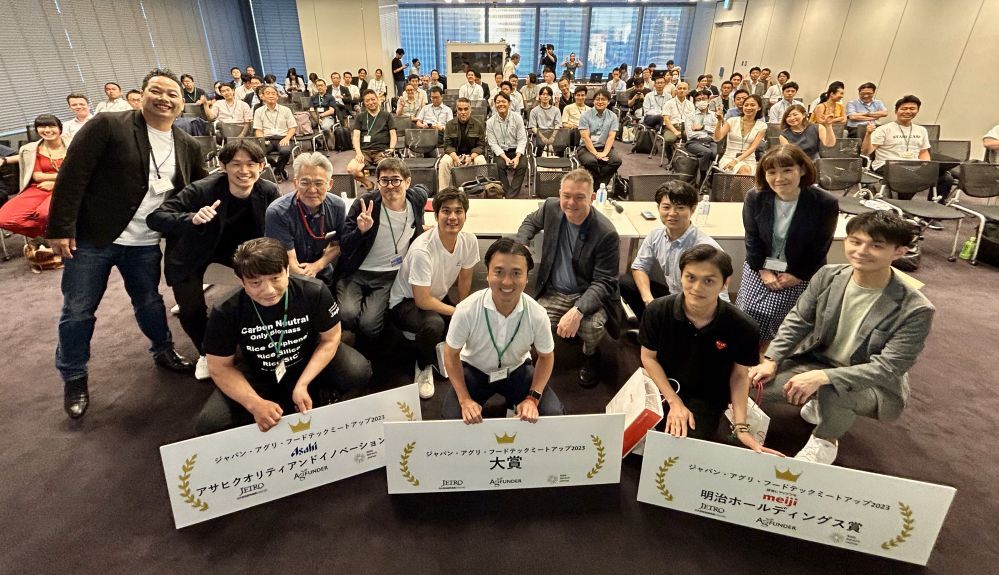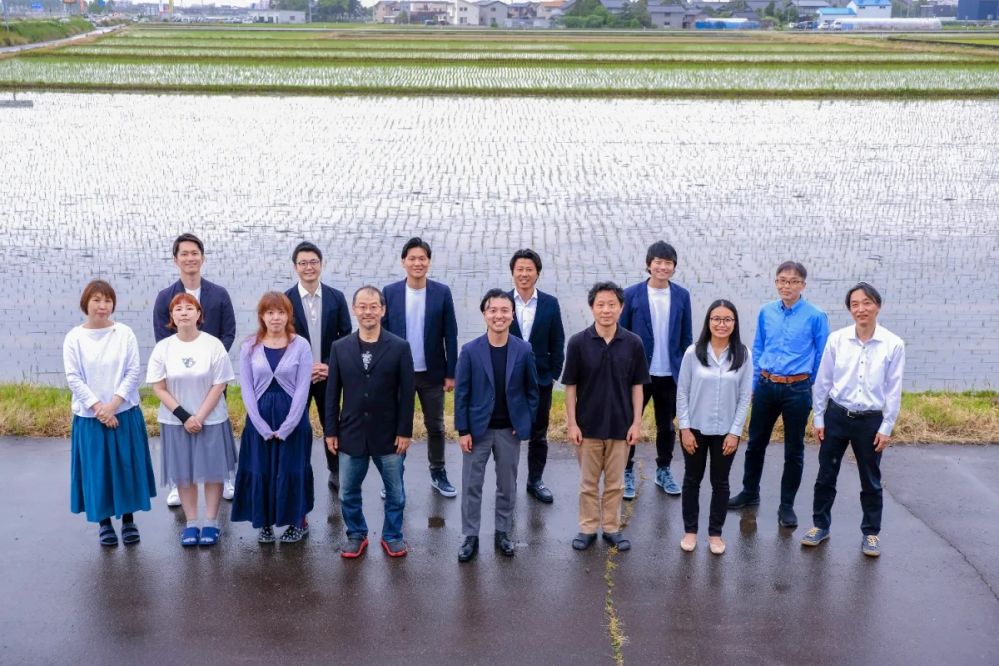Fermelanta—a Japanese startup engineering bacteria to produce high-value plant secondary metabolites including morphine—wowed judges at last month’s Japan agrifoodtech meetup, winning a pitch slam organized by AgFunder, JETRO Startup and SDG Impact Japan.
[Disclosure: AgFunder is the parent company of AgFunderNews.]
Thanks to advances in synthetic biology, scores of food ingredients, nutraceuticals and pharmaceuticals are now produced more efficiently and sustainably via microbial fermentation.
Microbes are not, however, used for the production of plant secondary metabolites such as benzylisoquinoline alkaloids (morphine, codeine, berberine etc)—which are still extracted from plants in a costly and inefficient process—because the metabolic pathways involved in producing them are so complex.
Until now. Fermelanta has reproduced the enzymatic pathways to produce several of these molecules via precision fermentation, cofounder and CEO Shogo Fukizaki told AgFunderNews.
“We have introduced an unprecedented number of up to 20 heterologous plant genes into the genome of a single bacterial cell that enable multi step metabolic pathways.”
There are 12 steps to get to an intermediate called S-reticuline, and a further eight steps to get to opium alkaloids such as morphine and thebaine, said Fukizaki. S-reticuline can also be used as a precursor to antibacterial agents such as berberine and magnoflorine, he said.
$1.5m seed funding
Fermelanta, which was founded last October but draws upon 15 years of research conducted at Ishikawa University (the patents have been transferred to Fermenlanta, says Fukizaki), recently closed a Y200m ($1.5m) seed round.
The funding will be used to help Fermelanta improve yields to the point that it can compete with existing plant-based production methods for benzylisoquinoline alkaloids, which are too complex for cost-effective chemical synthesis, said Fukizaki.
“We plan to strengthen the basic technology over the next year and a half of R&D and then proceed to the prototyping and scale-up phase.”
The business plan will evolve, he said, but the aim is to produce some molecules in house and then work with contract manufacturers to produce others via a licensing model.
As for regulatory pathways, while drugs are more complex and expensive to get to market than foods and nutraceuticals, the molecules Fermelanta is producing are not novel, he stressed. “The chemicals themselves are the same as the ones already on the market. We’re not doing drug discovery.”

Food waste valorization, molecular farming, regenerative agriculture
Other startups pitching at the 2023 Japan AgriFoodTech Meetup on July 25 were:
- Endophyte – Endophyte helps boost plant resilience in challenging environments using patented microbial inoculants.
- Faeger – Faeger monetizes decarbonization measures for farmers and supports the distribution of carbon credits.
- Kinish – Molecular farming startup Kinish produces dairy proteins in rice plants.
- Greenase – Greenase turns vegetables into powders via a process that preserves their color, aroma, and nutritional content.
- Jikan Techno – Jikan Techno upcycles agricultural waste into high value-added products such as graphene and botanical silica.
The agrifood meetup event in downtown Tokyo, which brought together partners across Japan’s agrifoodtech ecosystem on July 25, also featured panel discussions, presentations and updates from AgFunder portfolio companies from the region including Integriculture (Japan) and MYCL (Indonesia), shared AgFunder Asia director John Friedman.
“The energy in the room was great. We had over 100 people attending in person while another 70+ dialed in on Zoom. The highlight no doubt was the pitch challenge; we received 34 applications from Japanese startups addressing challenges across the value chain of food and ag, from farming automation to climate impact, to waste valorization.”
The judging panel comprised representatives from the organizing partners as well as several of AgFunder’s Japanese LPs (limited partners) including Asahi, Kewpie and Meiji.
While startups in the region are developing technological solutions to challenges in food production, the panel discussions also highlighted the importance of ‘food as culture’ in Japan and the need to align novel foods with Japanese cultural identity and traditional farming practices, said Friedman.
“The level of engagement and conversation around Japan’s food system transformation has really amplified over the past year. We’re excited to be working with our partners on the ground to be a part of this change, and collectively move the needle towards a more resilient and sustainable agrifood industry for all.”
If you’re a Japanese startup and would like to apply for investment from one of AgFunder’s funds, please submit your pitch deck using this link.
- Interested in the latest developments in cellular agriculture in Japan? Join the Cellular Agriculture Institute of the Commons at its annual cell ag conference on August 29. More details HERE.






